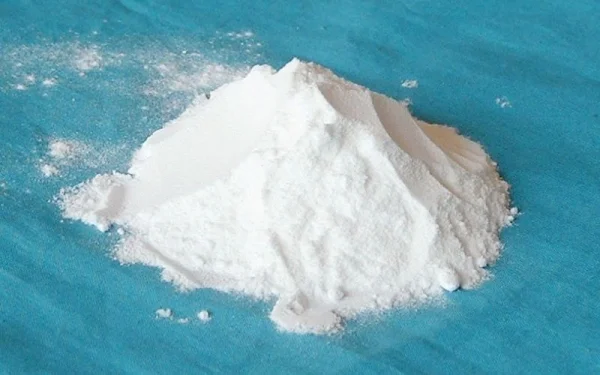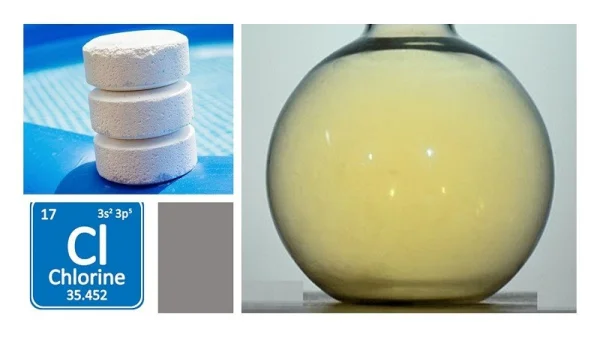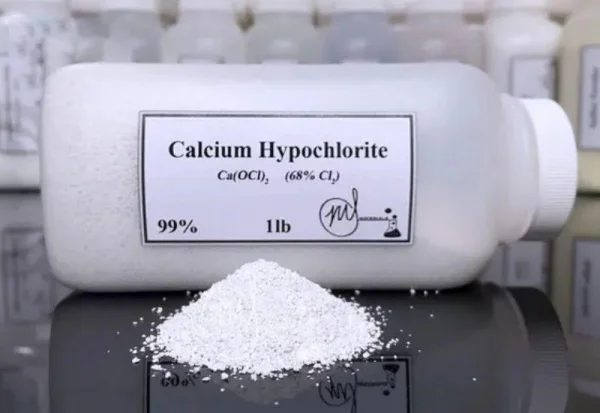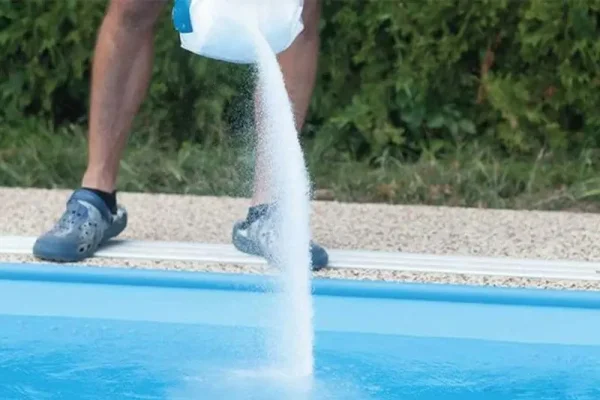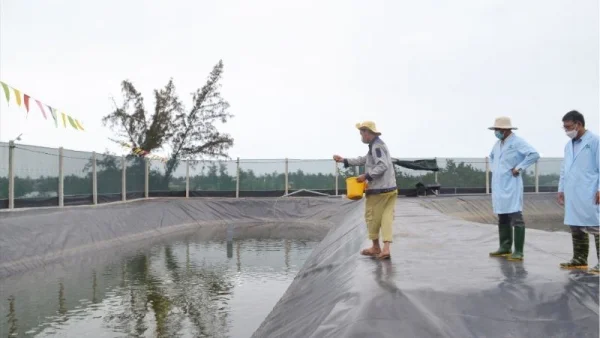
Maintaining a clean pool is crucial for the health and enjoyment of swimmers. One of the most effective and widely-used methods for water disinfection and treatment is the use of chlorine. Chlorine is a versatile and powerful chemical that can effectively eliminate harmful bacteria, algae, and other contaminants from pool water.
In this comprehensive guide, we will explore the advantages of chlorine, the differences between chlorine powder and chlorine tablets, and the proper usage and safety precautions to ensure the best results for your pool.
What is Chlorine Powder?
Chlorine powder, also known as chlorine granules or calcium hypochlorite, is a widely-used chemical compound in the pool and spa industry. It is a white, granular substance that is typically 60-68% active chlorine by weight. Chlorine powder is a powerful oxidizing agent that can effectively kill a wide range of microorganisms, including bacteria, viruses, and algae, making it an essential tool for maintaining the cleanliness and sanitation of pool water.
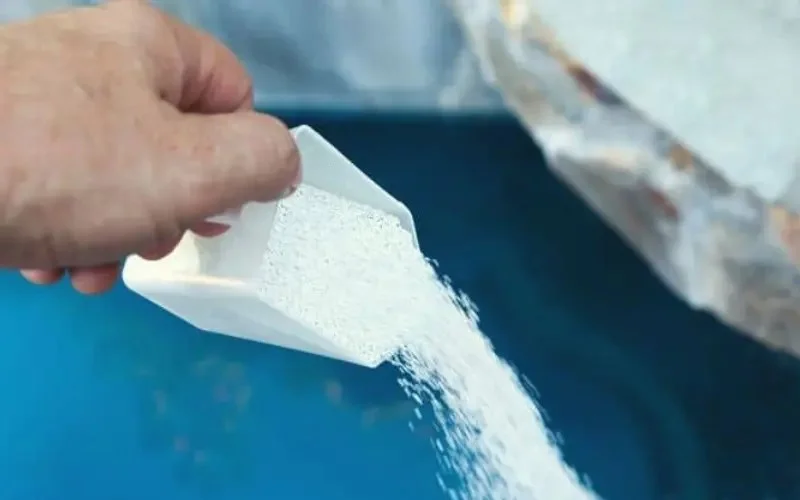
Benefits of Chlorine Powder Utilization
Chlorine powder offers several advantages over other pool water treatment methods:
Effective Disinfection: Chlorine powder is highly effective in killing a wide range of harmful microorganisms, ensuring that your pool water is safe and sanitized for swimmers.
Versatility: Chlorine can be used in a variety of pool settings, from residential to commercial, and can be easily adjusted to accommodate different pool sizes and water volumes.
Cost-Effectiveness: Compared to other pool treatment options, chlorine is generally more affordable, making it a cost-effective solution for pool owners.
Ease of Use: This product is relatively straightforward to use, as it can be easily measured, dissolved, and dispersed in the pool water.
Differences Between Chlorine Powder and Chlorine Tablets
While both chlorine powder and chlorine tablets are commonly used for pool water treatment, there are several key differences between the two:
Active Chlorine Content: Chlorine powder typically contains a higher percentage of active chlorine, ranging from 60-68%, compared to chlorine tablets, which are usually around 85-91% active chlorine.
Organic Content: Chlorine tablets often contain a small amount of organic material, which can lead to the formation of chlorine-resistant biofilms and increased chlorine demand. Chlorine powder, on the other hand, generally has a lower organic content.
Dissolution Rate: Chlorine tablets dissolve more slowly in the pool water, providing a more gradual and sustained release of chlorine. Chlorine powder, however, dissolves more quickly, leading to a faster increase in chlorine levels.
pH Impact: Chlorine powder can slightly increase the pH of the pool water, while chlorine tablets have a more neutral pH impact.
Effectiveness against Algae: Chlorine tablets are generally more effective in eliminating and preventing the growth of algae in the pool, due to their slower dissolution rate and sustained chlorine release.
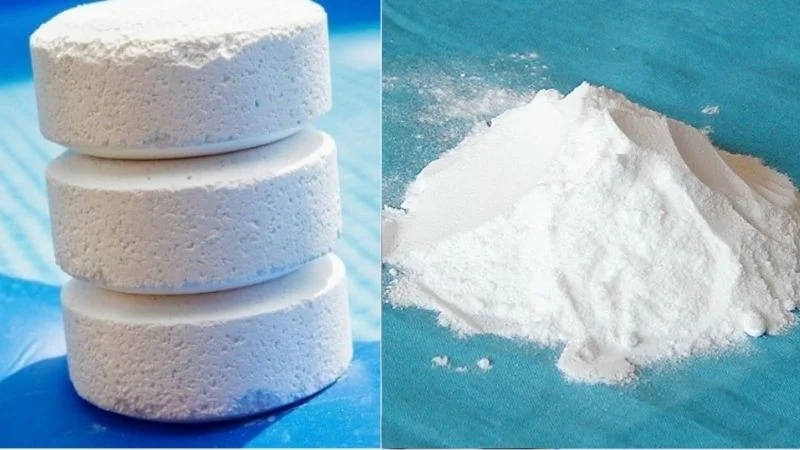
How to Chlorinate Your Pool Effectively
To ensure the safe and effective use of chlorine for your pool, follow these steps:
Case 1: Using Chlorine Tablets for Pool Water
Chlorine tablets come in three types: fast-dissolving and slow-dissolving.
Fast-dissolving chlorine tablets come in 2g, 2.5g, and 200g sizes.
Purpose: Rapidly increase the chlorine level in the water.
Dosage: Use 10 pcs of 2-2.5g tablets or 1 pc of 20g tablets per 1 cubic meter (m³) of water.
Maintenance dose for 2-3 days: 100 pcs of 2g or 2.5g tablets, or 10 pcs of 20g tablets for 50-100 m³ of water.
Slow-dissolving chlorine tablets: 200g size
Maintenance dose for 7-9 days: 1 pc of 200g tablet per 50 m³ of water.
Note:
Use a basket to evenly dissolve the chlorine.
The doses mentioned above are approximate. For best results, test the pH and chlorine levels in the water and adjust the chemical dosage accordingly based on the pool size, bather load, water temperature, and other factors.
Case 2: Using Chlorine Powder for Pool Water Treatment
Necessary equipment: a scale to weigh the powder, a 20-liter bucket/container that can withstand chlorine corrosion, a stirring rod, and a scoop.
Procedure:
Add the measured amount of chlorine powder to the bucket/container and mix with a small amount of pool water to dissolve.
Let the solution settle, then use a scoop to distribute the chlorine-rich water around the pool.
Use the pool pump and a handheld rod to circulate the water and evenly distribute the chlorine solution.
Caution:
Purchase chemicals from reputable suppliers to avoid counterfeit or inferior products.
Pay attention to the expiration date, storage instructions, and safety precautions when handling this chemical.
Avoid inhaling chlorine fumes when opening the packaging or during the application process.
Testing Chlorine Levels
You also need to prepare a pool water test kit and chlorine to check the water concentration. The steps to test the water concentration are as follows:
Step 1: Take the water sample from a depth of about 45 cm from the pool surface to get the most accurate result. Do not take the water from the surface.
Step 2: Pour the water into the test tube and add the appropriate amount of chlorine.
Step 3: Shake the test tube well to dissolve the chlorine powder, then close the tube tightly.
Step 4: Wait for a while, and the water in the test tube will change color. Compare the water color with the color chart to get an accurate reading.
After testing the concentration, if the chlorine level is lower than the recommended level, you can add more chlorine powder to the pool water.
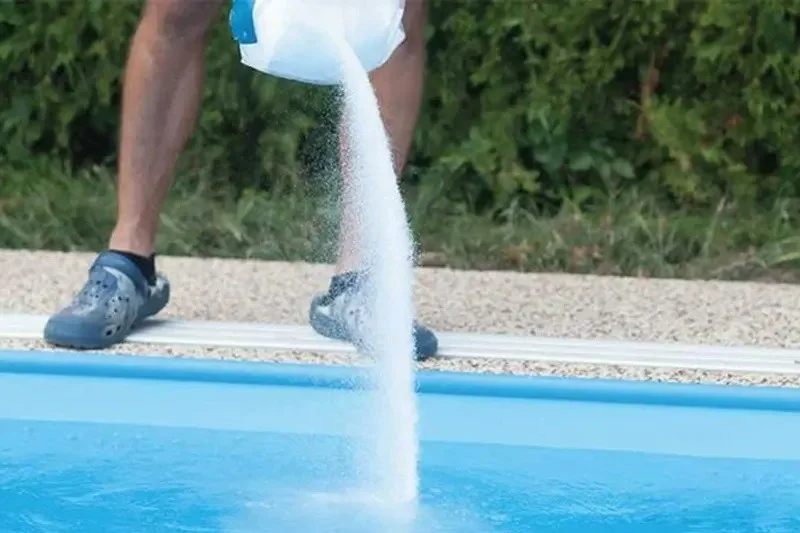
Conclusion
Chlorine powder is a highly effective and versatile tool for maintaining the cleanliness and sanitation of pool water. By understanding the proper usage and safety precautions for both chlorine tablets and chlorine powder , you can ensure that your pool water is safe, clear, and enjoyable for swimmers. Remember to always consult with a pool professional and follow the manufacturer's instructions to achieve the best results and maintain a healthy, well-maintained pool.
Related Articles
Top 3 Applications of Chlorine Powder
Chlorine powder , also known as calcium hypochlorite (Ca(OCl)2), is a widely used disinfectant ...
Unveiling Liquid Chlorine: Uses and Safety
Liquid chlorine , also known as chlorinated water or hypochlorite solution, is a versatile chemical ...
What is Calcium Hypochlorite? An Overview
Calcium hypochlorite , with the molecular formula Ca(ClO) 2 , is a widely used chemical compound ...
Is It Safe To Use Chlorine in the Food Industry?
Chlorine is a highly versatile chemical that plays a crucial role in various industries, including ...
Effective Ways to Neutralize Chlorine in Water
Chlorine is a chemical element belonging to the Halogen group, and it has widespread applications in ...
Chlorine 70: The Powerful Disinfectant
Chlorine is a powerful chemical with strong oxidizing and disinfecting properties. It is widely used ...

